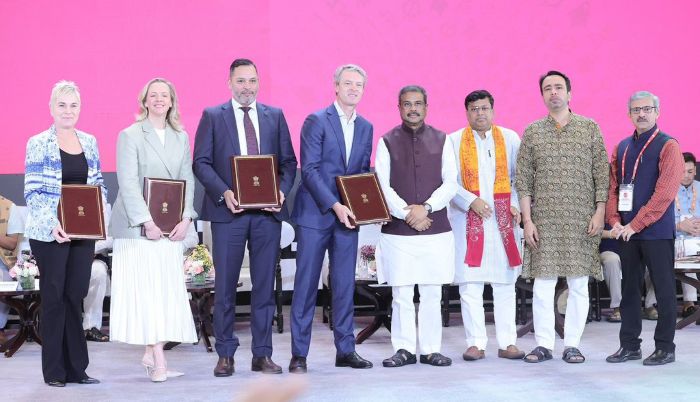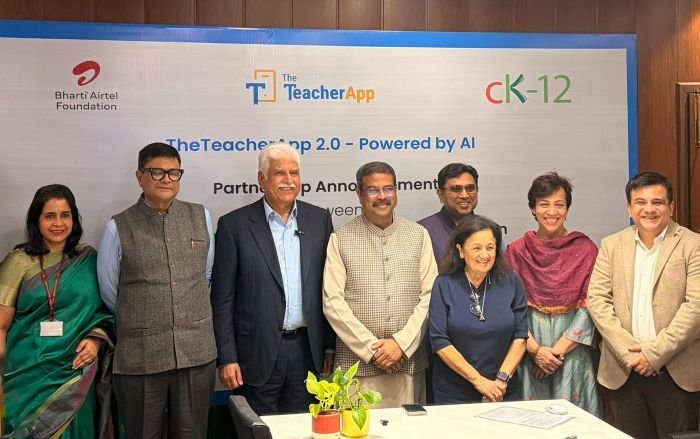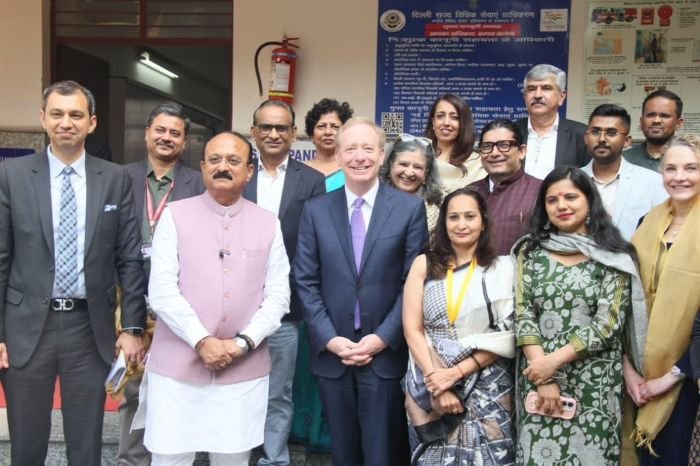
University of Bristol, one of the top universities in the world and the UK, has announced that it has been granted approval from the University Grants Commission (UGC) to create a new campus in Mumbai, which is due to open in summer 2026. One the occasion of the fifth anniversary of India’s National Education Policy (NEP) 2020, the University of Bristol has received a letter of intent from the Indian government to create a new Enterprise Campus in Mumbai. The Letter of Intent was formally presented to Vice Chancellor and President of the university, Professor Evelyn Welch and a delegation from Bristol, by the Hon’ble Secretary Higher Education & Acting Chairman UGC Vineet Joshi during the NEP 2020 anniversary celebrations held in New Delhi.
The Mumbai Enterprise Campus will be the first international campus that the University of Bristol will be establishing, enabling the institution to deliver world-class education in-country, expanding access and creating real, long-term impact for students, educators, and communities alike in Mumbai, India and the region more broadly. Graduates from the India campus will benefit from global-standard curricula and strong industry linkages, creating seamless pathways to international careers while strengthening India’s skilled workforce.
Bristol’s Mumbai Enterprise Campus will bring together industry, academics, students and partners within a thriving entrepreneurial ecosystem. Mirroring the University’s new Temple Quarter Enterprise Campus, due to open in September 2026, it will focus on how data, AI and immersive technologies meet and will have a distinctive emphasis on innovation, interdisciplinary education and inclusion.
Initial subjects taught will focus on areas of global distinction for Bristol such as data science, economics, finance and investment, immersive arts and financial technology, expanding to computer science and AI, business and management. The University is also planning to offer scholarships as part of its award-winning Think Big programme.
Professor Evelyn Welch, Vice Chancellor and President of the University of Bristol said: “We are absolutely delighted to announce our intention to create a new campus in Mumbai which would mark a pivotal transformation in our 150-year history and a powerful, globally inclusive future we’re proud to build in partnership. Developing an in-country base has long been part of our international strategy and supports our ambition to be a top 50 global university.
“Less than two weeks ago, we launched the UK’s most powerful supercomputer in Bristol, and next year we will be opening the doors to our new Temple Quarter Enterprise Campus. At such an important time for the University, we are pleased to develop partnerships across the globe which will have meaningful impact.”
Professor Michele Acuto, Pro Vice-Chancellor for Global Engagement at the University of Bristol, added: “This is far more than a new location; it’s a purposeful extension of our vision to meet our learners and communities where they are, and to do so with respect, integrity, and deep local engagement that sets us apart as a global civic institution.
“We will do so from day one together with our local partners, to co-create a campus that stands as a global gateway connecting with the vibrant energy and innovation of Mumbai where business, technology and arts converge – reflecting and amplifying the international vision, interdisciplinary strengths and outward-facing spirit of our home institution. We look forward to sharing more detail on these exciting plans over the coming months as they develop.”
Christina Scott, Acting British High Commissioner to India, said: “The Prime Ministers of the UK and India have committed to nurture the next generation of global talent through our education and skills partnership, and today’s announcement will further deepen collaboration between our countries.”
“Aligned with the shared ambition outlined in the UK-India Vision 2035, this move reflects a genuine commitment to meeting learners where they are, supporting innovation, interdisciplinary learning, and inclusion.







